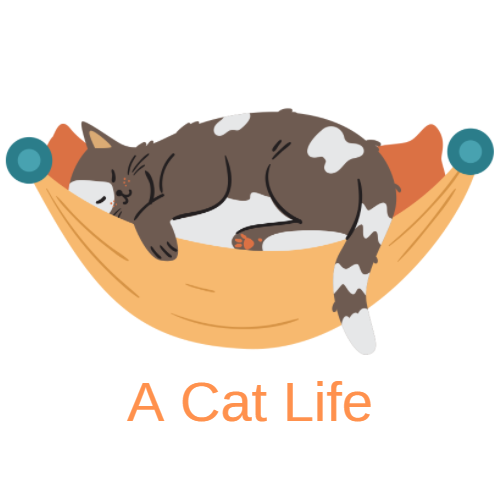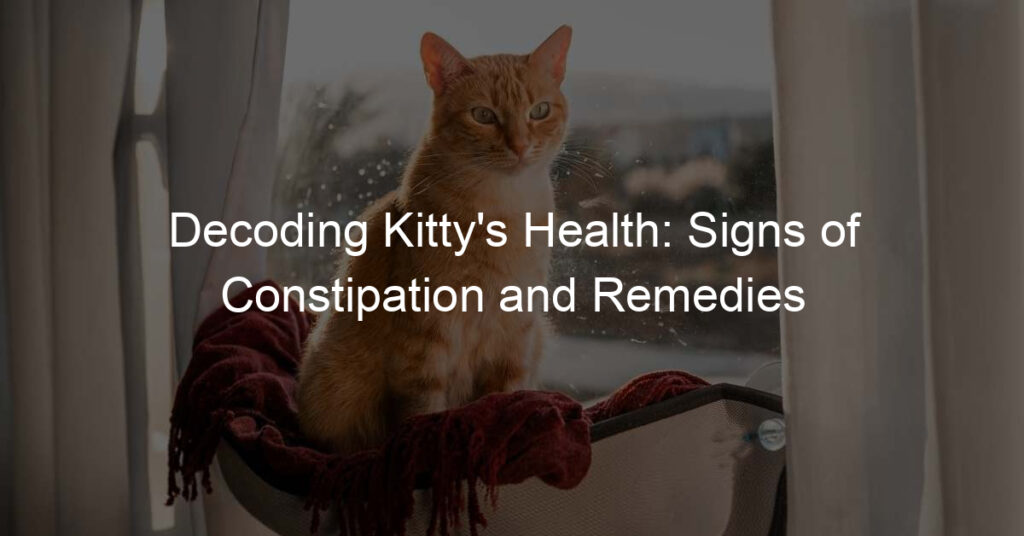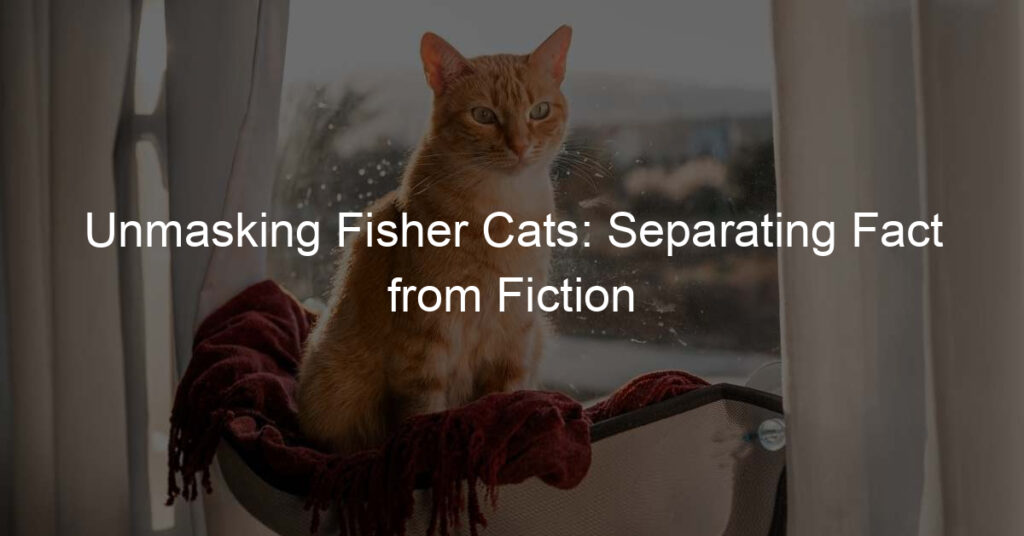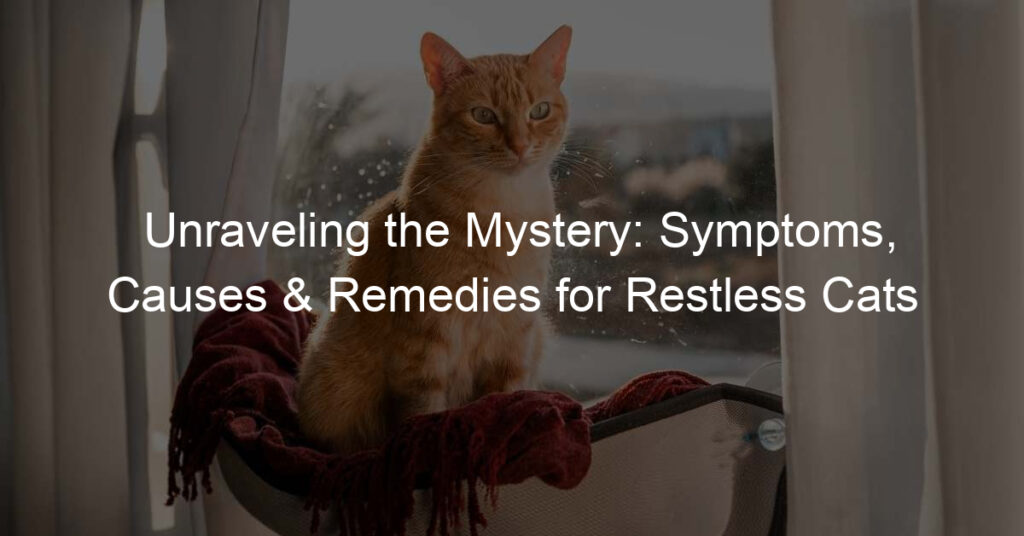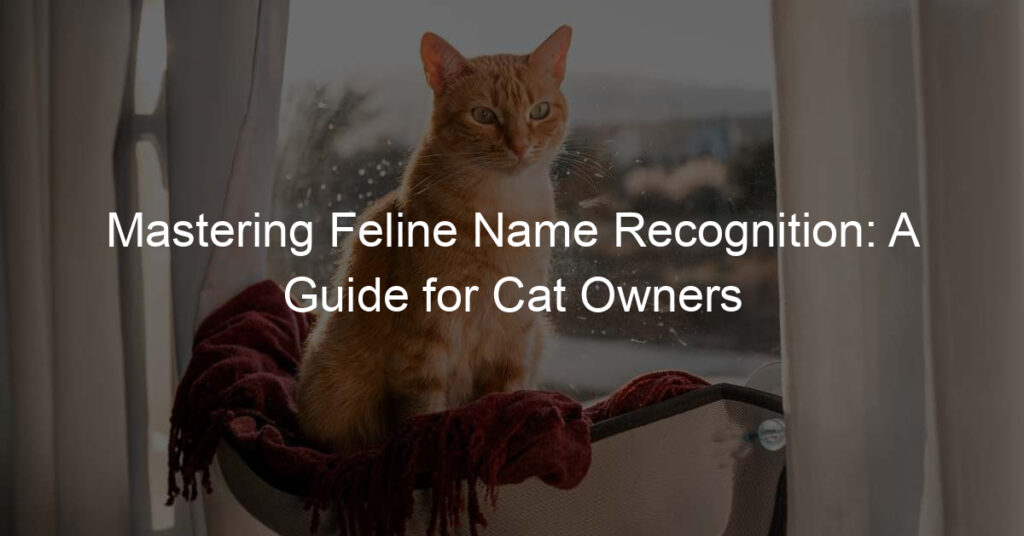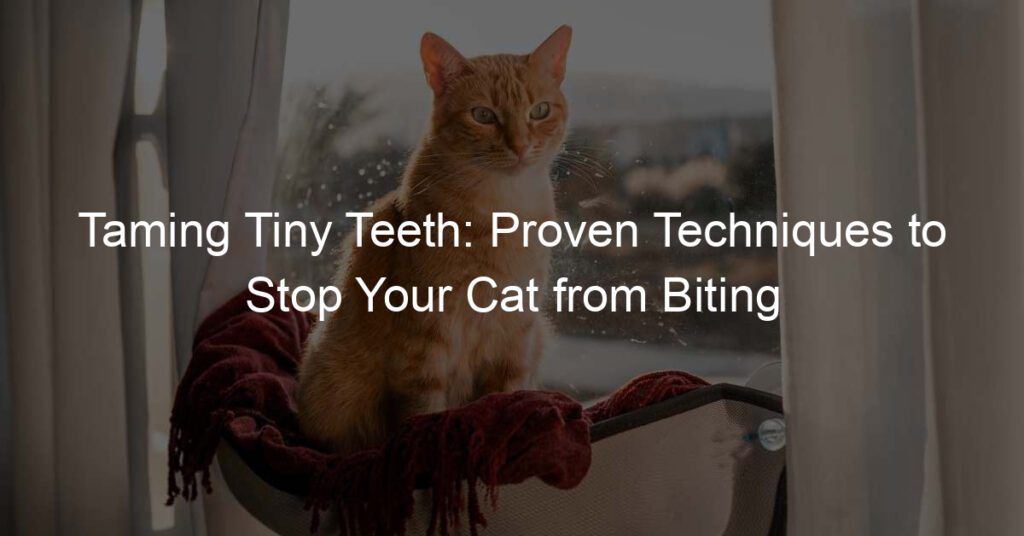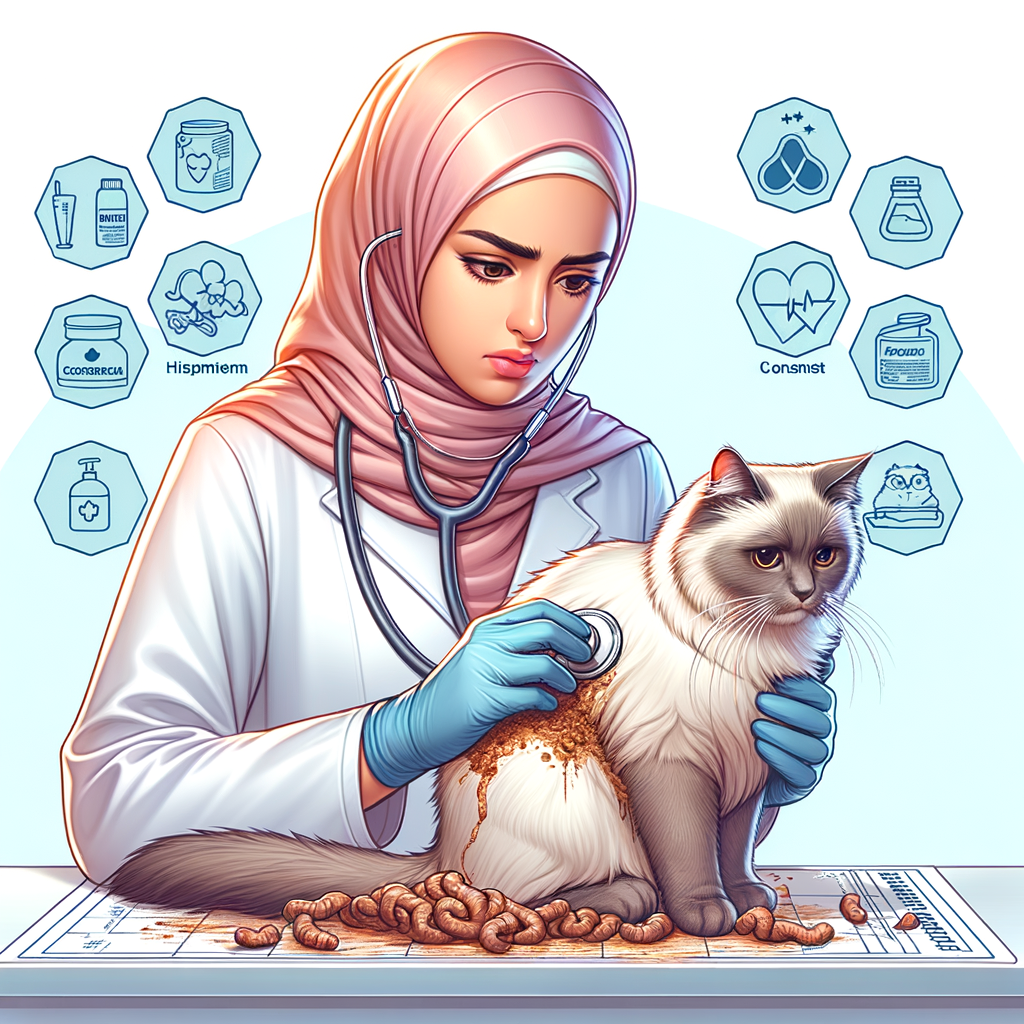
Introduction to Cat Health Issues
As a cat owner, your feline friend’s health is of utmost importance. Understanding common health issues in cats can help you take better care of your pet and ensure they live a long, healthy life. Let’s delve into why understanding cat health is crucial and some of the common health issues cats face.
- Importance of Understanding Cat Health
- Common Health Issues in Cats
Understanding your cat’s health is vital for several reasons. Firstly, it allows you to recognize early signs of illness, enabling timely treatment. Secondly, it helps you provide a healthy lifestyle for your cat, preventing many common health issues. Lastly, it ensures your cat’s overall well-being and happiness.
Cats, like humans, can suffer from a variety of health issues. Some of the most common include obesity, dental disease, kidney disease, and constipation. Each of these conditions can significantly impact your cat’s quality of life, but with proper understanding and care, they can be managed effectively.
Throughout this article, we will focus on one common health issue in particular – cat constipation. We will explore its causes, symptoms, and treatments, as well as how to prevent it. By the end of this article, you will be equipped with the knowledge to help your cat stay healthy and happy.
Understanding Cat Constipation
Constipation in cats is a common health issue that can cause discomfort and distress. It is important to understand the causes of this condition to prevent it and ensure your cat’s well-being.
Cat Constipation Causes
There are several reasons why a cat might experience constipation. Here are the most common causes:
- Dehydration: Just like in humans, dehydration can lead to constipation in cats. If your cat isn’t drinking enough water, their stool can become hard and difficult to pass. Always ensure your cat has access to fresh, clean water.
- Dietary issues: A diet low in fiber can also lead to constipation. Cats need a balanced diet to maintain a healthy digestive system. If your cat’s diet lacks sufficient fiber, it can result in hard, dry stools.
- Medical conditions: Certain medical conditions, such as kidney disease or arthritis, can cause constipation in cats. If your cat is frequently constipated, it’s important to consult with a vet to rule out any underlying health issues.
Understanding the causes of cat constipation is the first step towards preventing it. In the following sections, we’ll explore how to help a constipated cat, home remedies for cat constipation, and ways to prevent cat constipation.
Signs of Constipation in Cats
As a cat owner, it’s crucial to understand the signs of constipation in your feline friend. This condition can cause discomfort and may indicate other underlying health issues. Here are the three main signs to look out for:
- Difficulty in Passing Stool
- Loss of Appetite
- Abdominal Discomfort
One of the most evident signs of constipation in cats is difficulty in passing stool. If your cat is straining or making frequent trips to the litter box without producing much waste, it could be a sign of constipation. This is often accompanied by discomfort and restlessness.
Another common sign of constipation in cats is a loss of appetite. If your cat is constipated, they may not feel like eating. This can lead to weight loss and other health problems if not addressed promptly. Therefore, if your cat is not eating as much as usual, it’s essential to monitor their bathroom habits closely.
Abdominal discomfort is another sign of constipation in cats. If your cat is constipated, they may show signs of discomfort such as hunching over, showing a lack of interest in play, or even vocalizing pain. If you notice these signs, it’s important to seek veterinary care immediately.
In conclusion, understanding the signs of constipation in cats is crucial for their health and well-being. If you notice any of these signs, it’s important to consult with a veterinarian to determine the best course of action. Remember, early detection and treatment can prevent more serious health issues down the line.
How to Help a Constipated Cat
If your feline friend is having trouble in the litter box, it can be a sign of constipation. It’s important to know when to seek professional help and what to expect at the vet. Here’s some expert advice.
Veterinary Advice for Cat Constipation
When it comes to cat constipation, timely veterinary advice can make a big difference. Here are two key points to keep in mind:
- When to seek professional help: If your cat hasn’t had a bowel movement in more than two days or is showing signs of discomfort like straining in the litter box, it’s time to consult a vet. Remember, constipation is not just an inconvenience; it can lead to serious health issues if left untreated.
- What to expect at the vet: The vet will likely perform a physical examination of your cat, which may include palpating the abdomen to check for hard, impacted feces. They may also conduct blood tests or X-rays to rule out underlying conditions. Treatment options can range from dietary changes to medication or, in severe cases, surgery.
Helping a constipated cat involves understanding the issue, recognizing the signs, and seeking professional help when necessary. With the right approach, you can ensure your feline friend stays healthy and happy.
Cat Constipation Treatment
When it comes to treating cat constipation, there are several options available. These treatments range from medication to dietary changes and, in severe cases, surgery. Let’s delve into each of these treatments in detail.
- Medication
- Dietary Changes
- Surgery in Severe Cases
One of the first steps in treating cat constipation is often medication. Your vet may prescribe a medicine that helps to soften your cat’s stools, making them easier to pass. Laxatives are commonly used, but it’s important to only use them under the guidance of a vet. Overuse can lead to dependency and worsen the condition.
Another effective treatment for cat constipation is making changes to your cat’s diet. This could involve increasing the amount of fiber your cat consumes. Fiber helps to add bulk to the stool, making it easier for your cat to pass. It’s also essential to ensure your cat is drinking enough water, as dehydration can lead to constipation. A diet rich in wet food can help keep your cat hydrated.
In severe cases of cat constipation, where medication and dietary changes haven’t worked, surgery may be necessary. This is typically a last resort and is only used when the constipation is causing significant discomfort or health risks to your cat. The surgery involves removing the impacted stool and, in some cases, part of the colon. It’s a major procedure and requires a significant recovery period.
Remember, it’s always best to consult with a vet before starting any treatment. They can provide the best advice based on your cat’s specific needs and health condition.
Home Remedies for Cat Constipation
When your feline friend is having a tough time in the litter box, it can be distressing for both of you. Luckily, there are several home remedies you can try to help alleviate your cat’s constipation. Here are three simple and effective methods:
- Increasing Water Intake
Dehydration can often lead to constipation in cats. Ensuring your cat is drinking enough water can help soften their stool, making it easier for them to pass. Try to make fresh water available at all times, and consider investing in a cat water fountain, which many cats find more appealing than a static water bowl.
- Adding Fiber to Diet
Just like in humans, fiber can help improve digestion in cats. Adding a little bit of canned pumpkin or a teaspoon of wheat bran to your cat’s food can increase their fiber intake and help alleviate constipation. However, it’s important to introduce new foods slowly and in small amounts to avoid upsetting your cat’s stomach.
- Regular Exercise
Regular physical activity can help keep your cat’s digestive system running smoothly. Engage your cat in play sessions with toys, or consider using a laser pointer to encourage them to run and jump. Not only will this help with constipation, but it’s also a great way to keep your cat fit and healthy.
Remember, these home remedies can be effective, but if your cat’s constipation persists, it’s important to consult with a veterinarian. They can provide professional advice and treatment options tailored to your cat’s specific needs.
Preventing Cat Constipation
Preventing cat constipation is an essential part of maintaining your feline friend’s overall health. By taking a few simple steps, you can help ensure your cat’s digestive system functions smoothly. This can lead to a happier, healthier cat and fewer vet visits for constipation-related issues.
Treating Cat Constipation
While prevention is the best approach, sometimes constipation can still occur. In such cases, it’s important to know how to treat your cat’s constipation effectively. Here are a few key strategies:
- Regular vet check-ups: Regular vet check-ups are crucial for catching any health issues early, including constipation. Your vet can provide a thorough examination and recommend treatment options if necessary. They can also give advice on preventive measures to avoid future constipation.
- Proper diet: A diet rich in fiber can help prevent constipation in cats. Fiber helps to add bulk to the stool, making it easier for your cat to pass. Wet food can also be beneficial as it contains more moisture than dry food, which can help keep your cat hydrated and promote healthy digestion.
- Regular exercise: Regular exercise can help stimulate your cat’s digestive system and prevent constipation. Play with your cat regularly using toys, or encourage them to move around by placing their food in different locations around the house.
Remember, each cat is unique and what works for one may not work for another. Always consult with your vet before making any significant changes to your cat’s diet or exercise routine.
In conclusion, preventing and treating cat constipation involves regular vet check-ups, a proper diet, and regular exercise. By following these steps, you can help ensure your cat’s digestive system remains healthy and functioning properly.
Conclusion: Ensuring Your Cat’s Health
As we wrap up this comprehensive guide on cat health, specifically focusing on constipation, it’s crucial to remember that the health and wellbeing of your feline friend largely depends on you, the owner. Let’s revisit the two key points we’ve discussed throughout this article.
- The role of the owner in cat health
- Importance of early detection and treatment
As a cat owner, you play a pivotal role in your pet’s health. You are responsible for providing a balanced diet, ensuring regular exercise, and maintaining a clean environment. These factors significantly contribute to preventing constipation and other health issues in cats. Regular vet visits are also crucial for routine check-ups and vaccinations. Remember, a healthy cat is a happy cat!
Early detection and treatment of any health issue, including constipation, can make a huge difference in your cat’s life. If you notice any changes in your cat’s behavior, eating habits, or litter box usage, it’s essential to consult a vet immediately. Timely treatment can prevent the issue from escalating and causing more discomfort to your feline friend. In the case of constipation, early detection can prevent serious complications such as megacolon or obstipation.
In conclusion, your cat’s health is in your hands. By being attentive to their needs, providing a healthy lifestyle, and seeking professional help when needed, you can ensure a long, happy, and healthy life for your feline friend. Remember, every cat deserves a life free from discomfort and illness. Let’s make that possible!
